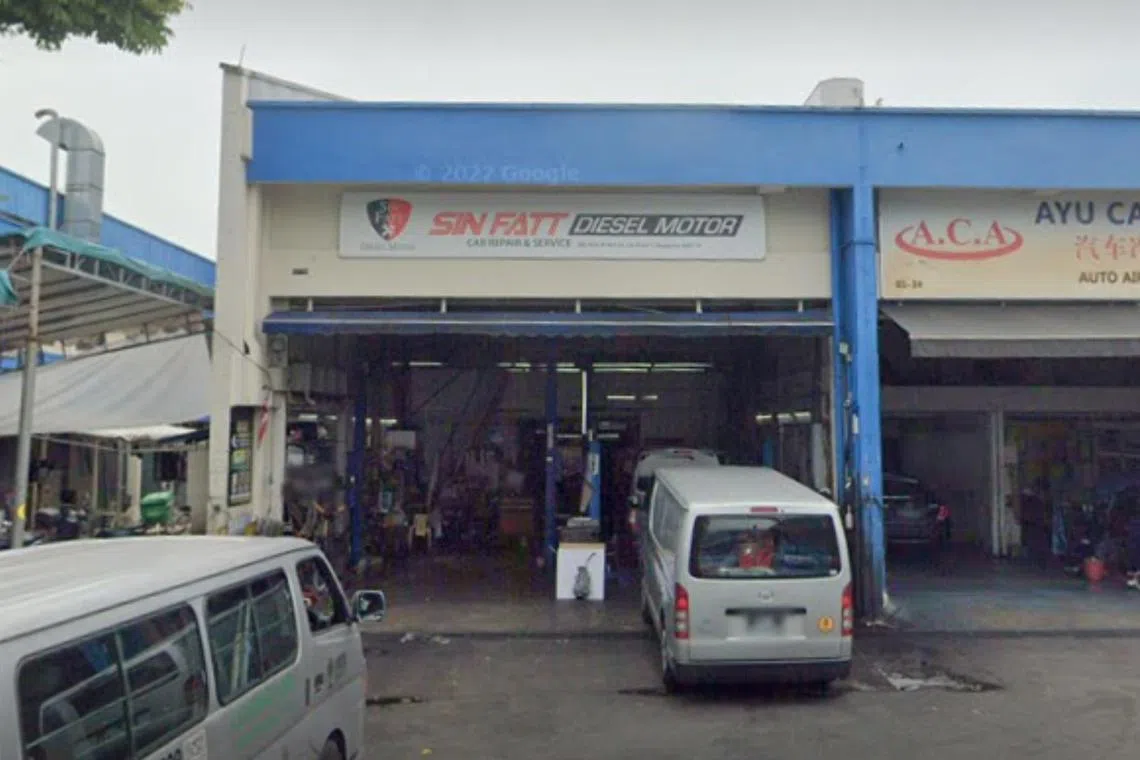Dodgy diesels fuel costly repairs to vans and trucks
Sign up now: Get ST's newsletters delivered to your inbox

At Sin Fatt Diesel Motor in Ubi, one of its mechanics said fuel-damaged vans were quite common.
PHOTO: SCREENGRAB FROM GOOGLE MAPS
Follow topic:
SINGAPORE - As the sale of illegal diesel makes a comeback, motor workshops are seeing commercial vehicles sputtering in with damaged fuel injectors and clogged filters.
Some are so broken that they are towed in. One workshop owner said he has seen so many such vehicles that he can literally smell the cause of the breakdowns – fuel from illegal sources, which he said has a distinctly different odour from those from regular pumps.
The vehicle owners face repair bills of at least $2,500 and days without the use of their vehicles.
CS Autolab in Sin Ming sees at least one such vehicle a month. The workshop’s owner, Mr Winson Ow, said some of these damaged vans are barely more than a year old.
At Sin Fatt Diesel Motor in Ubi, one of its mechanics pointed to a parked Toyota Hiace when asked if there were any fuel-damaged vans around. He quipped in Mandarin: “It is quite common. I am waiting for the owner of that van to decide if he wants to proceed with the repair.”
Often, the repair will include changing the vehicle’s fuel injectors and pumps, and overhauling the rest of the fuel system – a job that can take two to three days.
While smaller vans like the Peugeot Partner have four fuel injectors, larger trucks and buses can have six or more. Each injector costs around $200 to $300 before installation, and workshops would usually replace the entire set at one go.
Modern diesel engines require high quality diesel to operate properly. Contaminants like sulphur in illegal fuel lead to poorer emissions and clog up the fuel system.
Given rising fuel prices, some drivers have been turning to cheap diesels sold illegally from tanker trucks at public carparks and unbranded or “white pumps” at industrial areas.
The savings from using such fuels instead of the usual branded diesels can be as much as a dollar a litre – or more than 40 per cent. But the fuels can also wreak havoc on modern diesel engines.
Engineer and automotive writer Shreejit Changaroth said the amount of sulphur in these fuels may be higher than diesels from authorised stations, as they do not need to comply with the same quality standards.
The fuel can also be corrupted if it is poorly handled, like being stored in a tank that contains moisture. Such contaminants clog up the fuel injector nozzles, he added.
Mr David Kennedy, a technical expert who has more than 20 years of experience with various major car manufacturers, said modern fuel injector nozzles can be as fine as 0.2mm – less than the typical 0.5mm lead used in mechanical pencils.
To catch larger impurities before the fuel reaches the engine, some motor workshops install additional filters along the fuel lines.
“If the fuel quality is bad, the filters are not likely to be able to prevent engine damage,” Mr Kennedy said.


